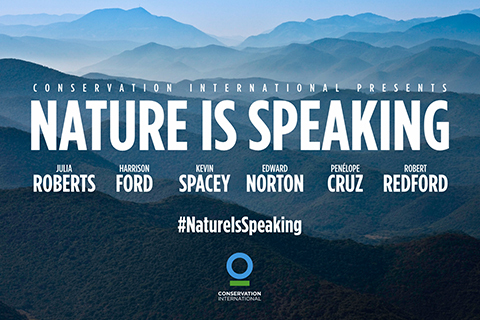"Wilderness is hard on our economy."
I recently heard those words coming from an elected official in Idaho during an NPR story on the 50th anniversary of the Wilderness Act.
Unfortunately, his words express a common belief.
For too long, environmentalism and conservation have been focused on saving nature for its intrinsic value. We talk about endangered species and national parks, and worry about the state of the world's coral reefs. We don't really talk much about people except almost as an afterthought. In some instances, we've even allowed our efforts to be framed as favoring nature at the expense of people.
Don't get me wrong. Personally, I love nature and have as long as I can remember, starting with my childhood in West Africa where colobus monkeys and pygmy hippos were never far away. But I have become frustrated with the view of nature as a fragile painting: a Sistine Chapel dripping with life, to be admired from afar and described in reverent tones.
Sure, some people are drawn to this idea, but they are far outnumbered by the number of people negatively impacted by the rapidity with which we are stripping our forests, mining our soils, drying up our water and fundamentally altering our planet's atmosphere and ocean's chemistry. Love alone is not enough; we need this place.
The hard truth is that we simply haven't done a very good job communicating why saving nature matters to the everyday problems and opportunities facing ordinary folks -- which is remarkable when you think about it, because nature as a whole is really not what's at risk here.
Nature has been around for more than 4.5 billion years, evolving and adjusting to whatever the universe throws at it. People, on the other hand, are very fragile and entirely dependent on what nature provides.
We need to reframe the debate and change the conversation -- in other words, the environmental movement needs a rebrand. And that's exactly what Conservation International is doing with the Nature Is Speaking campaign.
(Disclosure: I am Conservation International's EVP and Senior Scientist.)
The campaign launches Monday at SXSW Eco and on www.natureisspeaking.org with a series of short films that let nature speak for itself. Imagine the ocean or the rainforest was talking to you; what do you think it would say? In our campaign we give voice to nature, allowing us to hear directly from its many manifestations: water, soil, coral reefs -- even Mother Nature herself.
This campaign was designed by the legendary Lee Clow of TBWA\Media Arts Lab -- the creator of Apple's iconic "1984"and "Think Different" campaigns -- and his team in collaboration with Conservation International. It takes a page from smart brands like Apple or Virgin Airlines, who have changed not just the perception of a particular product but the conversation around an entire segment of life, and in the process created brands we simply want to be around.
For me, Nature Is Speaking is unique for a couple of reasons.
The first is that unlike most advertising campaigns, it really isn't about CI -- it's for and about the audience. In these films you won't hear directly about the transformational work securing nature for people that CI is engaged in around the world, nor do they position our brand as the "best" in the business. Instead our campaign allows individuals, communities, cities and companies to use the platform we are providing to tell their own stories of sustainability.
Of course, I hope people respond to Nature Is Speaking by learning more about CI, and even choosing to support us. But that is a secondary to our purpose here: Jolting folks with the message that saving nature is really about saving ourselves.
This post was originally published on Conservation International's blog, Human Nature.
--
M. Sanjayan is an executive vice president and senior scientist at CI.
